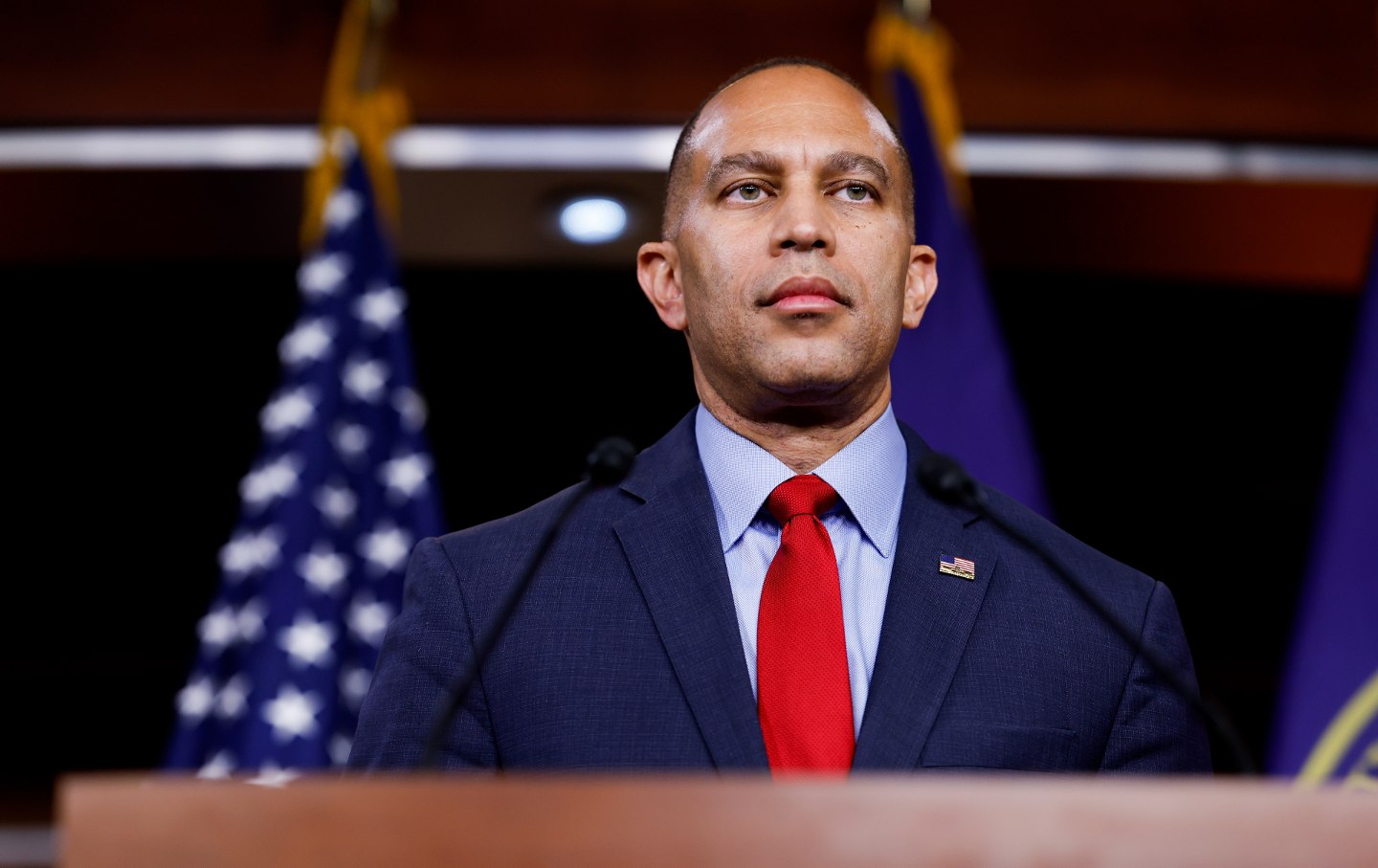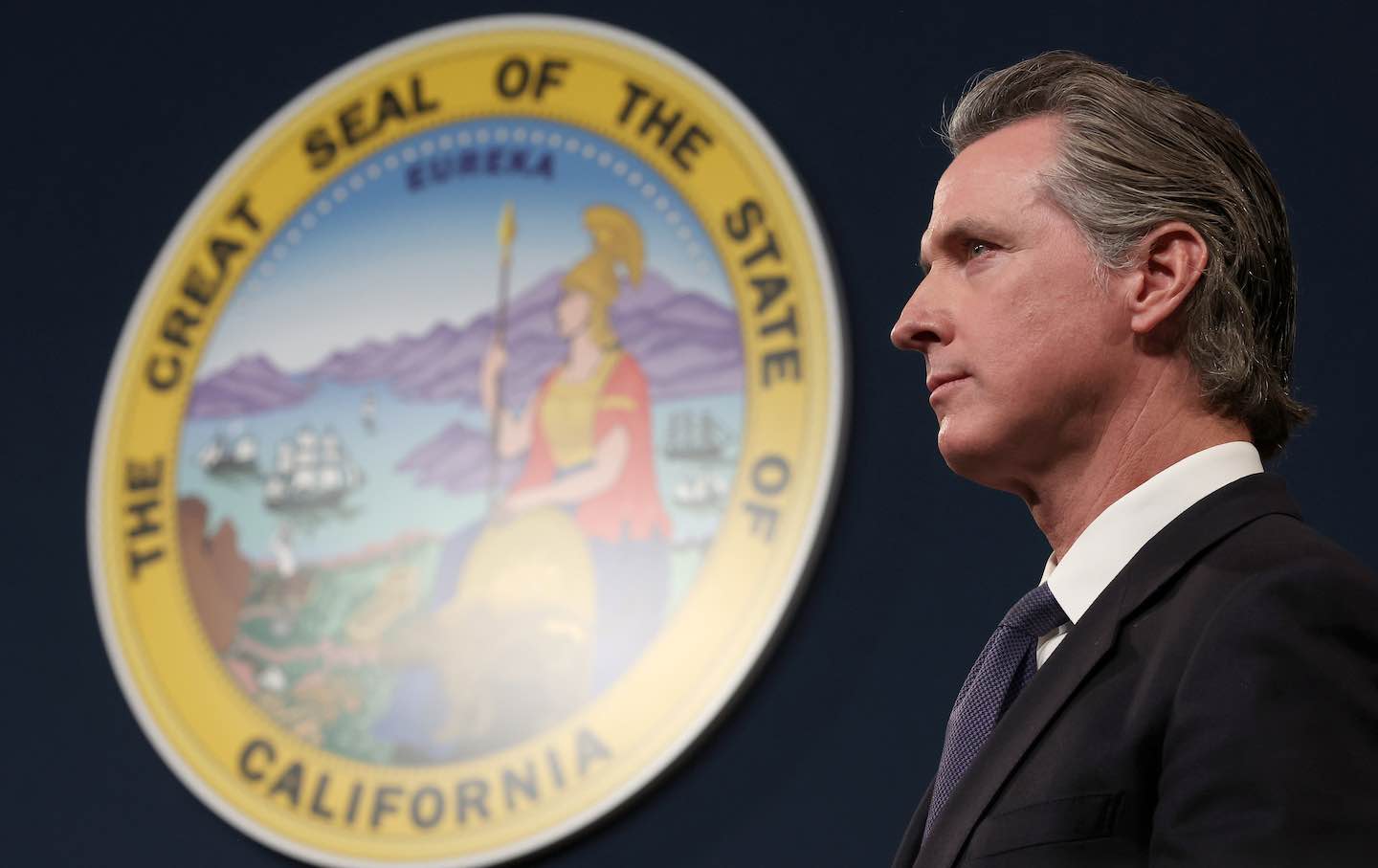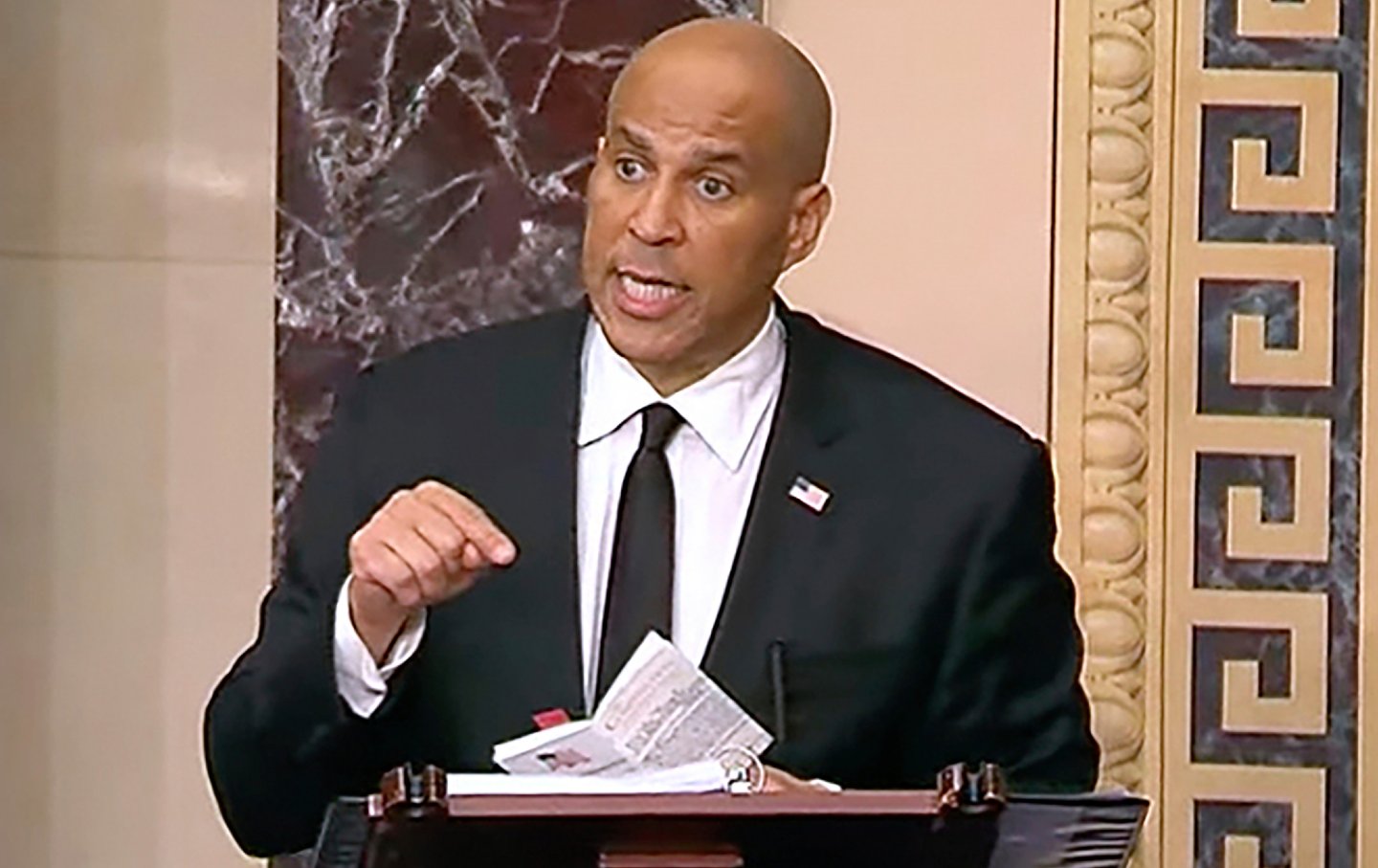Democrats Can Win Big in 2024. But They Have to Fight for It.
Republican chaos may help Democrats some in 2024. But if they want to win, they really need to help themselves.

On October 3, Democrats gleefully joined eight dissident Republicans to bounce Kevin McCarthy as speaker of the House. That made sense: McCarthy was an inept, untrustworthy leader who couldn’t be counted on to keep his word to his own caucus, let alone the opposition, and Democrats were under no obligation to save him. But McCarthy’s exit could also give Democrats an edge in their quest to retake the House in 2024. While he was an incompetent House speaker, McCarthy knew something about securing GOP control.
In 2022, when Republicans failed to take the Senate and suffered setbacks in statehouse races, McCarthy’s multiyear focus on candidate recruitment, fundraising, and targeted spending paid off in a narrow 222–213 GOP majority. And as a leader who was clearly more interested in elections than in governing, McCarthy was already organizing to retain the GOP majority in 2024.
With his ouster, however, the party’s strategies have been upended. Florida Representative Matt Gaetz’s headline-grabbing takedown of McCarthy has blown apart the House Republican Conference, exposing the bitter internal warfare that has shaken conservative donors and must have potential GOP candidates asking themselves whether they want to jump into a crashed clown car. (Donald Trump’s endorsement of Freedom Caucus cofounder Jim Jordan to replace McCarthy has only made things worse, though now Jordan’s intraparty rival, House Majority Leader Steve Scalise, has been selected as the GOP’s candidate for speaker.) Nebraska Representative Don Bacon, who won his seat with just 51 percent of the vote in 2022, warned that the drama “hurts our own party” going into 2024.
Indeed it does. Even before McCarthy’s derailment, Democrats were in a hopeful mood. They need to gain only five seats to retake the House. Bacon is one of 18 GOP incumbents whose districts voted for Joe Biden in 2020. If just a third of those seats flip in 2024, Democrats could take charge. In addition, legal challenges to the GOP-friendly congressional maps in New York, Utah, Florida, and possibly Wisconsin—as well as a new, court-ordered Alabama district that leans Democratic—could open up a half-dozen or more seats. And increased turnout by young voters, angered and mobilized by threats to abortion rights, could continue to imperil anti-abortion Republicans.
The opportunities for Democrats are ripe, but so are the potential pitfalls. Chief among them will be the instinct to simply run against “those crazy Republicans.” Voters are generally disgusted with the Republican-controlled House—only 17 percent approve of how the chamber operates—but a RealClearPolitics analysis of recent polls still gives Republicans a one-point advantage over Democrats in generic election matchups.
The current chaos may help Democrats some. But to win, they really need to help themselves. They should start by reclaiming the debate over the economy. An NBC poll from late September found that, by a 49 to 28 percent margin, voters saw Republicans as better prepared to manage the economy than Democrats. That’s a red flag—and a signal that running against Trump’s corruption and Gaetz’s nihilism won’t be enough. Democrats need a muscular economic agenda that makes it clear that if they win control of the White House and both houses of Congress, they will use it to deliver for the working class. That will give uncertain and infrequent voters a reason to turn out.
Democrats should be recruiting candidates nationwide—especially in the rural Midwestern districts that were woefully neglected by the Democratic Congressional Campaign Committee in 2022. And those candidates should be ready to embrace economic populism as part of a nationalized campaign that offers tangible commitments to double the minimum wage, tear down barriers to union organizing, expand Social Security and Medicare, and tax the rich. Instead of avoiding controversy, Democrats should court it by adopting popular proposals to codify abortion rights, legalize marijuana, fight inequality, and end profiteering by Big Pharma, Big Oil, and Big Tech.
The smart alternative to conservative disarray is not centrist caution. It’s an inspired, unapologetically progressive vision that says government doesn’t need to be as dysfunctional as Republicans make it. Only if Democrats turn up the populist volume will voters give Biden and his party the majorities they need to show what Congress can do for America.








